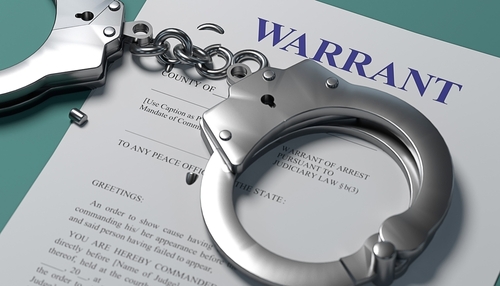Have you received a traffic ticket in the Fort Worth / Dallas metroplex? If yes, you must be mindful of the appearance date on the ticket – either a specific date or a certain number of days after the date of the stop. An appearance date is the date when you must make a personal appearance. If you do not appear in court, the judge could issue a traffic ticket warrant for your arrest along with a subsequent offense called a failure to appear.
When that happens, the fines usually increase, and you are subject to arrest at home, work, or anywhere the police can find you. A warrant for your arrest is serious, but you can avoid this problem by working with our Dallas traffic ticket warrant attorneys at Anderson & Anderson, LLP.
Which Traffic Violations Can Lead To A Warrant?
Even a minor traffic violation in Texas can result in a warrant if you do not timely handle the ticket. Some of the most common violations that can result in a warrant are:
- Speeding
- No Driver’s License
- Driving with an Expired or Suspended License
- Expired Registration
- No Insurance (Failure to Maintain Financial Responsibility)
- Running a Red Light
- Disregard Traffic Control Device
- Following Too Closely
- Not Signaling a Lane Change
- Failure to Maintain a Single Lane
- No Seatbelt
- Failure to Control Speed
How Bad Are Texas Warrants?
You can be arrested anywhere in the State of Texas if there is a warrant for your arrest. Law enforcement can show up at your home or work, put you in handcuffs, and take you to jail. Imagine the embarrassment of being arrested in front of your spouse, children, or co-workers! This can happen if you ignore a traffic ticket and do not call a criminal defense attorney, such as our traffic ticket attorneys at Anderson & Anderson, LLP.
You could also be charged with another warrant called a Failure To Appear or Violate Promise To Appear. Most drivers are not aware of this type of warrant. They think they only have one warrant, and then they learn that they actually have two warrants. Don’t let this happen to you. Contact Anderson & Anderson, LLP as soon as you receive a citation.
In addition to issuing a warrant, the court may place an OMNI HOLD on your driver’s license which means that you cannot renew your driver’s license. If this happens, you must now deal with the warrant and pay the OMNI hold fee to the court. The OMNI HOLD can only be paid after the warrant is lifted.
Every spring, some 300 law enforcement agencies throughout Texas participate in the Texas Warrant Roundup. This is a comprehensive law enforcement effort to arrest people for not appearing in court for traffic tickets. If you have an outstanding ticket, acting before you are arrested is critical. For immediate assistance with your ticket or warrant, the traffic warrant attorneys at Anderson & Anderson, LLP are only a phone call away – (214) 370-8260. We can save you money and help prevent a conviction that could adversely affect your driving record.
Remember that once there is a warrant for your arrest, it is difficult, time consuming, and expensive to handle on your own (pro se). The best and most expeditious way to handle an arrest warrant is to hire our traffic ticket attorneys at Anderson & Anderson, LLP. Our attorneys will work to have the warrant lifted. We will appear in court on your behalf to 1) help you keep your driving record clear of the offense and 2) try for a reduction in court fees.
Speak To Our Dallas Traffic Ticket Warrant Attorneys Today
If you have a traffic ticket warrant, time is of the essence in addressing this serious matter before possibly being arrested. Speak to our Dallas traffic ticket warrant attorneys at Anderson & Anderson now at (214) 370-8260. Our traffic ticket warrant attorneys have provided smart legal strategies and counsel to Dallas clients for over 20 years. We will provide the most vigorous defense and fight for the best outcome for your case.

